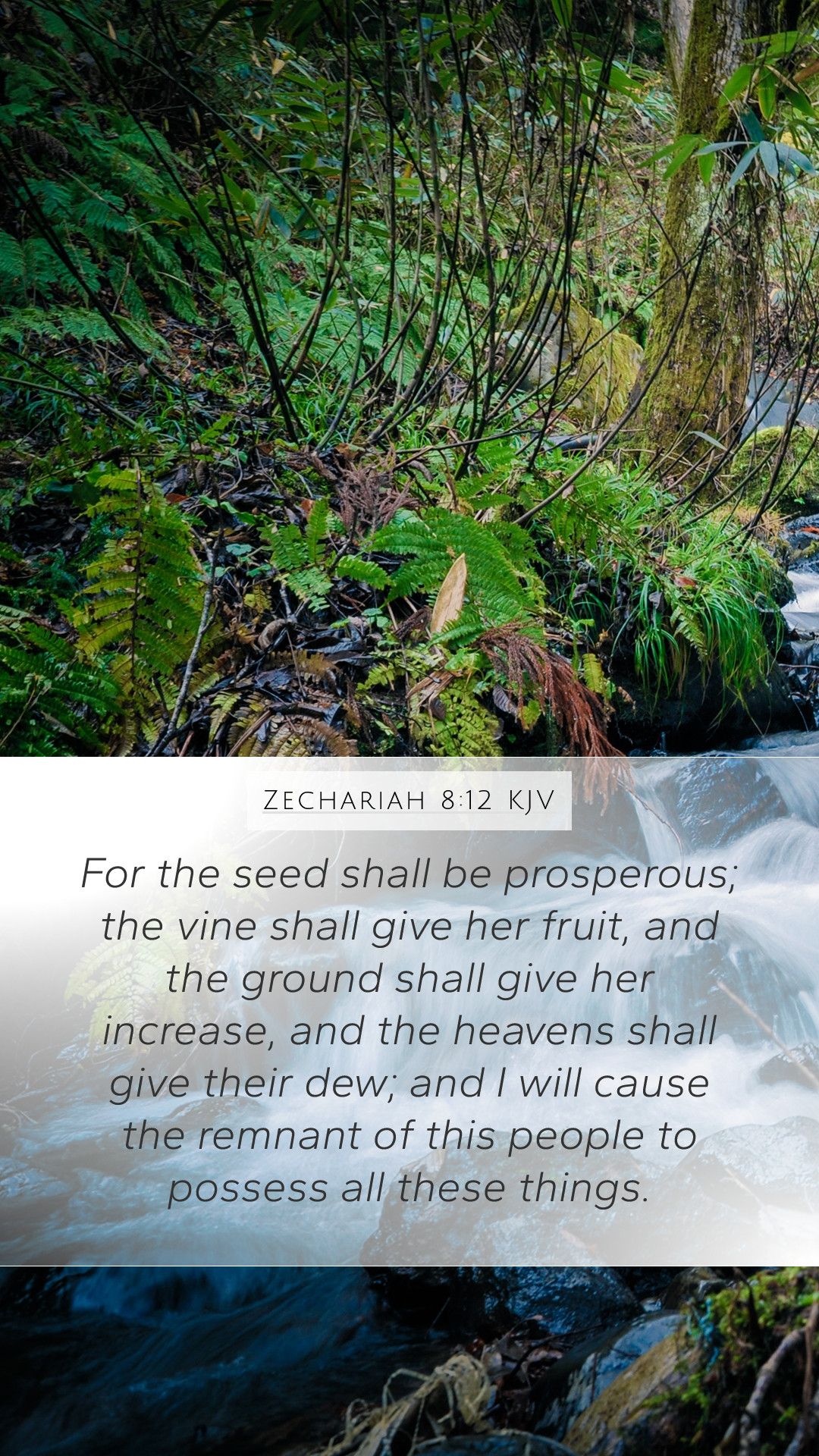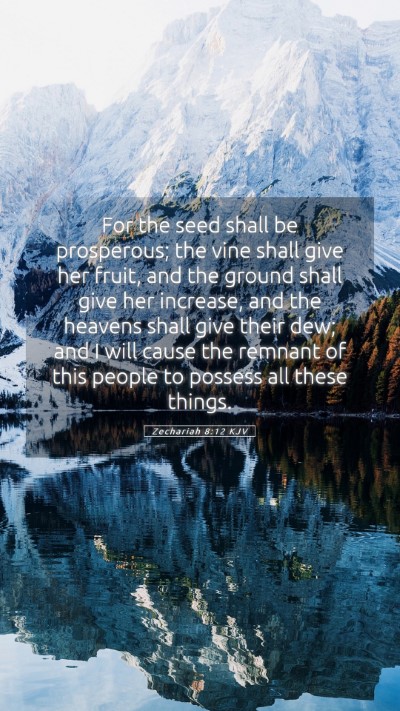Understanding Zechariah 8:12
Zechariah 8:12 states:
“For the seed shall be prosperous; the vine shall give her fruit, and the ground shall give her increase, and the heavens shall give their dew; and I will cause the remnant of this people to possess all these things.”
Meaning of the Verse
This verse is a prophetic promise by God to His people, conveying hope and assurance in the midst of their struggles upon returning from exile. Here is a breakdown of its significance as drawn from public domain commentaries.
1. Contextual Background
According to Matthew Henry, the context of Zechariah’s prophecy is rooted in the restoration of Jerusalem post-exile. The message is directed at the Jewish remnant, emphasizing that their return will bring about a flourishing society where God’s blessings will abound.
2. Symbolism of the Seed
Albert Barnes notes that “the seed shall be prosperous” symbolizes growth and fecundity. In agricultural terms, a prosperous seed indicates success in farming, a vital source of sustenance for the community, directly linking prosperity to obedience to God's will.
3. Abundance of Blessings
The later parts of the verse refer to the vine and the ground. Adam Clarke elaborates that the blessings of fruitful vines and an enriching environment depict God’s provision and prosperity. The imagery evokes an ideal community where nature responds positively to God's covenant with His people.
4. Divine Assurance
Through the statement “I will cause the remnant of this people to possess all these things,” believers are reassured of God's commitment to their welfare. This promise affirms that despite previous hardships, God's favor will lead to abundance, which is a recurring theme in biblical prophecy.
5. Theological Implications
Henry’s commentary emphasizes that this verse encapsulates not just agricultural abundance but spiritual rejuvenation as well. God promises not just material blessings but also a revival of faith among His people.
Applications in Daily Life
The teachings from Zechariah 8:12 can be applied in various facets of life:
- Trusting in God’s Provision: Believers are encouraged to trust that God will provide for their needs, reflecting the theme of divine sustenance in the verse.
- Embracing Hope in Hard Times: The remnant's return highlights that despite hardship, there is always hope for restoration and renewal.
- Cultivating Spiritual Growth: Just as the seed grows, believers are called to cultivate their faith, allowing the blessings of God to flourish in their lives.
Cross References
Zechariah 8:12 can be related to several other scriptural passages which provide deeper insight:
- Jeremiah 31:5 - Emphasizes the joy of planting and gathering, symbolizing renewal.
- Isaiah 55:10-11 - Draws parallels between God’s word and the effectiveness of His promises to produce fruit.
- Haggai 2:19 - Offers a promise of blessings amidst challenges, reflecting God’s faithful provision.
Conclusion
In summary, Zechariah 8:12 serves as a powerful reminder of God’s faithfulness and abundance for those who remain faithful to Him. The verse not only speaks to the restoration of Israel but resonates with contemporary believers, encouraging them to understand scripture through the lens of hope and divine providence.
Further Study Suggestions
For those interested in delving deeper into the implications of this verse, consider engaging with:
- Bible Study Groups: Participate in discussions focusing on Old Testament prophesies.
- Online Bible Study: Explore resources that provide insights into agricultural symbolism in the Bible.
- Bible Study Tools: Utilize commentaries and concordances for a comprehensive understanding of scriptural context.


